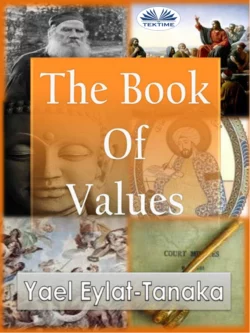The Book Of Values

Yael Eylat-Tanaka
Тип: электронная книга
Жанр: Книги по философии
Язык: на английском языке
Стоимость: 732.98 ₽
Статус: В продаже
Издательство: TEKTIME S.R.L.S. UNIPERSONALE
Дата публикации: 16.04.2024
Отзывы: Пока нет Добавить отзыв
О книге: A compendium of moral values discussed as social imperatives, rather than under the mantle of religion. Listed alphabetically, values ranting from Acceptance, Allegiance, Beauty, Work and Zeal are written in poetic prose accessible to everyone.